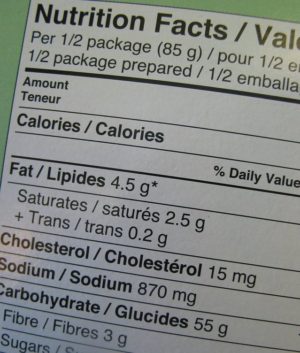Protein Facts
If a little is good, more is obviously better. Wait! Not so fast! Protein is both powerful and necessary to maintaining health, BUT in the case of this macronutrient, more is just more and not better.

Protein is necessary for muscle growth and development.
First, let’s take a look at what proteins are and what they do in the body. Proteins are made up of amino acids (think of these as legos) and provide the major structural components of muscle tissue, brain tissue, the nervous system, blood, skin and even hair and nails! It doesn’t stop there – this macronutrient also provides a transportation system for minerals, vitamins, fats, and oxygen. It even plays a role in maintaining the acid-base balance and fluid balance. Although we derive energy from consuming protein, it is the body’s least preferred source of fuel for activity and rest. However, during times of starvation, the body breaks down its stores to provide a source of fuel.
Why More is Just More

Protein! Protein! Protein!
Yes, protein plays many critical roles in the body. Logically, we would think we need to consume protein in abundance. However, a little goes a long way. The body, unlike with fats and carbs, has a limited capacity to store extra protein. When added amounts, beyond what the body actually needs, is consumed here’s what happens: part of the protein is excreted (the nitrogen group) while the carbon group is converted to sugar or fat (depends on what you need at the time). In the end, an overabundance is stored as fat. This is not necessarily desirable.
Recommended Amounts
There are many theories and recommendations surrounding the “ideal consumption” topic. In the interest of keeping this post relatable and applicable, keep the following tips and guidelines in mind when it comes to planning your intake.
- Eat a wide variety of foods with at least 2 servings of fish/week (salmon, tuna, etc.)

- Add nuts and seeds to the diet
- Consider consuming 1/2-1 cup of beans or lentils daily
- For generally healthy individuals, 0.8g/kg body weight is recommended. This amount will help prevent a deficiency. That said,
training and intensity of training will impact a person’s needs. Recommended intake can climb as high as 1g or more/kg body weight. - Choose quality animal sources (white meat chicken, lean pork, loin meat, white meat turkey, lean fish, and beef).
An Example
Here’s a simple way to estimate what your needs might be. There are 2.2 kilograms in each pound. So, the math looks like this:
150 pound healthy individual needs how much (approximately)?
Step 1. 150lbs/2.2kg = 68.18 kg

Step 2. 68.18kg x 0.8g/kg body weight = 54.54g needed.
Happy Calculating! And remember- more isn’t always better. Sometimes more is just more. See links below for more information.


0 Comments